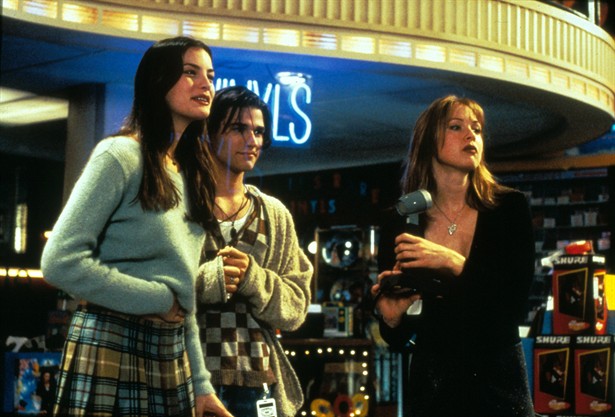Culture
Revisiting The Rotten: “Empire Records”

This week sees a new weekly feature on Heave, Revisiting the Rotten, in which Calhoun Kersten uses Rotten Tomatoes’ famed “rotten” designation to dig back into the annals of trashy movie history and grant second chances, further burials or perhaps something in between. This week, the so-90s-it-hurts Empire Records.
First up is the seminal 1995 classic, Empire Records. Yes, folks, you read that right. I did indeed use the words “seminal” and “classic” in describing a Renee Zellweger movie. My apologies, it’ll never happen again. Before diving into the movie itself, let’s take a look at what critics had to say when the movie was first released. The movie currently holds a 24% rating, with a whopping five critics defending it against the 16 critics who weren’t really fans. John J. Puccio of Movie Metropolis declares that “as the music fades into obscurity, this movie becomes largely meaningless.”
That seems as a good place as any to start. See, Puccio isn’t entirely wrong. Empire Records is a movie built around a soundtrack. Ask just about any 90s kid (myself included), and I bet you’ll find at least half of them can name three or more tracks off the unforgettable soundtrack. You’ve got your Gin Blossoms, your Evan Dando (from The Lemonheads? Anyone? Seriously?!?) and some Better than Ezra. The soundtrack boasts some serious 90s music staples. Now, ask that same person to name three or more characters? Well, unless you’re talking to a die-hard fan, you may run into some trouble there.
But Empire Records is the kind of movie that lends itself to obsessive types. Hell, even the DVD release of the movie is appropriately titled Empire Records: Remix! Special Fan Edition. It’s the type of movie that can easily be boiled down to a “point A to point B to point C” plot structure, but ask any kid growing up in the 90s and they’ll tell you it’s a whole lot more than that. It’s a quintessential experience. It’s part of our childhood. It’s the 90s boiled down to a running time of roughly an hour and 45 minutes. Honestly, it’s an era preserved on film through the zany antics of some record store clerks, perfect youthful abandon and a kick-ass soundtrack.
Now, does that make me blind to its faults? Certainly not. How about Liv Tyler taking two “mints” (the oh-so-subtle code word for speed) throughout the movie, without anybody noticing she’s a junkie until the third act? Or how about the fact that Warren (Brendan Sexton), who was just threatening to shoot the staff moments before, secures gainful employment from the record store he was robbing? No, Empire Records is far from a perfect film, but to dismiss it as a “lost cause” (as done by Mr. Roger Ebert) seems a little extreme.
Okay, so forget my overwhelming nostalgia for my youth that this movie so clearly represents. Let’s even dismiss the numerous and often distracting plot holes and inconsistencies. Doesn’t Empire Records, most importantly, have something to say? Maybe its message wasn’t appreciated in its time, but as countless chains spring up and small businesses struggle, Empire Records is oddly prophetic. I mean, think about it. Sure, it’s about the petty dramas of a bunch of pretty teens, most of whom look well into their 20s, but looking past that, it’s about Empire Records. It’s about a small business trying to stay afloat and fight the corporate overlords in an uncertain economic climate. Empire Records is perhaps more timely now than ever.
Is that the message I expect most people to take away from Empire Records? No, it’s really not. Is that message there? Some may argue that I’m reading too much into it, but I think it is. Truth be told, I’d be surprised if people looked beyond the soundtrack and the awesomely outdated 90s fashions. But even in trash, the kind that holds a 24% approval rating, there’s more going on underneath. What started out as an exercise in nostalgia turned up something else entirely.